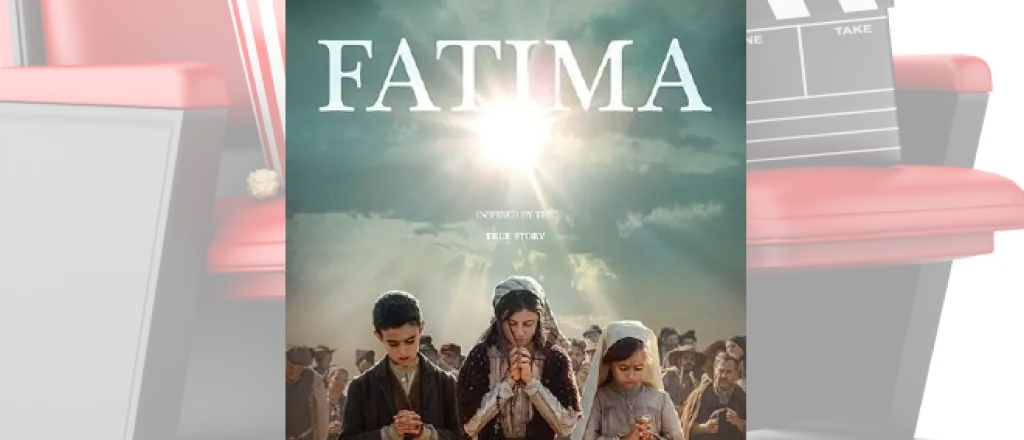
Movie Review - Fatima
Like “The Secret: Dare to Dream” from a few weeks ago, “Fatima” has been sitting at the top of my cable system’s New Releases section for what seems like months now. Like “The Secret: Dare to Dream,” “Fatima” tells of a spiritual journey, though it’s a much more recognizable form of spirituality than the vague power of positive thinking at the center of “The Secret.” Eerily like “The Secret: Dare to Dream,” “Fatima” features an onscreen quote from Albert Einstein: “There are two ways to live your life. One is as though nothing is a miracle. The other is as though everything is a miracle.” Unlike “The Secret: Dare to Dream,” “Fatima” seems like an earnest filmmaking endeavor and not a hokey attempt to revive fledgling book sales.
The film tells the story of Lucia (Stephanie Gil), a 10-year-old girl living in Fatima, Portugal in 1917. As with the rest of Europe, this is a dark era for Fatima. Sons, husbands, and fathers are off fighting in World War I, and the mayor (Goran Visnjic) is forced to read off long monthly lists of soldiers killed or missing in action. Famine and disease are overtaking the population and prayers are going unanswered. This is not a good choice if you’re looking for a “fun” movie.
One day, Lucia and her cousins Francisco (Jorge Lamelas) and Jacinta (Alejandra Howard) are playing in a field when they see an apparition of the Virgin Mary (Joana Ribeiro). This is no dubious burn on a piece of toast, this is a full-on live-action deity, complete with white robes and a heavenly glow. She tells the children to come back to the same spot every month for the next six months, and she will appear to them, and only them, again and again.
Word gets out about the children and their visions, and soon followers are showing up from far and wide to be the first to hear Mary’s words as soon as she relays them to the children. But not every character believes that the Virgin Mary is actually appearing. Lucia’s mother (Lucia Moniz), for example, dismisses the account as a wild story from an overactive imagination. The local priest (Joaquim de Almeida, inexplicably given top billing for a barely-significant role) thinks that the lie is an insult to God. The Mayor frets that the town becoming a spiritual haven will hurt its respectability. Almost every adult in power wants Lucia to retract her story, but she knows what she saw.
And so do we, and I think that’s a big problem with this movie. We see the apparition speaking to the children, so the credibility of their story is skewed in their favor. We don’t have the same reasonable doubts, which have to be overcome by faith, as the other adults in this movie. The fact that the apparition can only be seen by the children is a major plot point, so why shouldn’t we be taken on the same journey as everyone else?
That’s my big problem with “Fatima,” others include stiff acting by the children and everybody speaking English instead of Portuguese, often unnaturally. I also found it unnecessary to have a framing device where a skeptical American author (Harvey Keitel) interviews an adult Lucia (Sonia Braga), which seems to serve only as an excuse to advertise two well-known actors in the cast. At the same time, I can appreciate the efforts in recreating WWI-era Portugal, and it’s hard not to be inspired by the faith-overcomes-all aspects of the story. This is one of the better movies to go straight to On Demand in recent months, though I wish we were doing better overall.
Grade: C
“Fatima” is available On Demand through streaming services and likely through your local cable provider. The film is rated PG-13 for some strong violence and disturbing images. Its running time is 113 minutes.

















